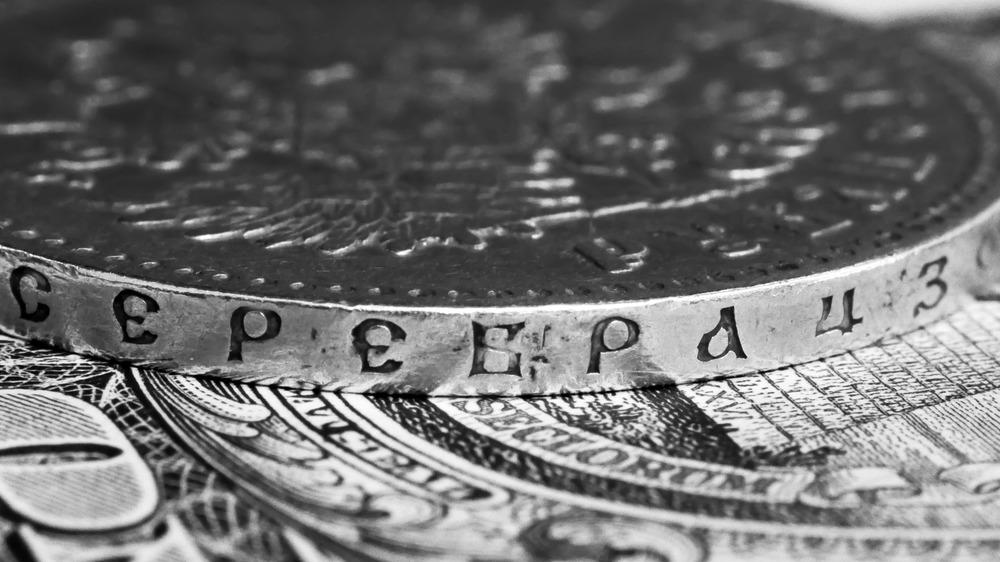The Bizarre True Story Of The Russian Vodka Protests
If you think of the words "Russian" and "vodka protest" together, you'd be forgiven for envisioning the more recent 2013 protests in Russia regarding anti-gay laws limiting "propaganda of nontraditional sexual relations," as NBC News explains. Bartenders poured Stolichnaya in the streets in a #dumpstoli campaign, and LGBTQ supporters in New York jumped on board and vowed to stop serving Russian vodka (per the New York Daily News), as did supporters in San Francisco (per the NBC Bay Area).
This recent occurrence is part of an historical trend of alcohol-related protests in Russia, especially a series of events that happened in 1858-1859 under Tsarist rule, when the protesters who refused to drink vodka had it poured down their throats by the army using funnels. Why, you ask? Because the protesters didn't want to drink.
As explained by the International Encyclopedia of Revolution and Protest, posted at the University of New Mexico, a short-lived temperance movement spread through Russia from 1858-1860 at a time when alcoholism was rampant and the number of nationwide taverns grew to over 77,000. A staggering 40 percent of the national budget at the time came from alcohol taxation. After the Crimean War, the government attempted to restore its funds by raising the price of alcohol bidding by 40 million rubles (government auctions were the standard method by which retailers gained the right to sell). Retailers boosted their prices in turn, and when customers couldn't afford alcohol, they turned to the nation's religiously-influenced temperance movement.
Russia's long history of 'vodka politics'
To understand the severity of the 1860 Vodka Protests, it's necessary to understand the relevance of alcohol — vodka, specifically — in Russian life and history. Vodka was never just a random drink you ordered at a bar with orange juice. It was the drink in a country where, as War on the Rocks cites, 23.4 percent of adult males will still, in the modern day, die from an alcohol-related disease or accident. (Some 400,000 Russians die this way every year). Fyodor Dostoyevsky (1821-1881), legendary Russian novelist, compulsive gambler, and ex-con imprisoned for denouncing the Tsarist practice of serfdom, said of his homeland, "Everyone is in a hurry to drink themselves into insensibility," as quoted by the Independent.
Because vodka has been so inextricably linked to everyday life, it's been used repeatedly as a tool of Russian sociopolitical leveraging. Alexander II repealed the serf system (yay, Dostoyevsky) in 1861, and persecution of temperance advocates simmered down. After that, however, it was the government who took to advocating temperance. Nicholas II banned the sale of alcohol when World War I began, and when the Romanovs were executed in 1918, Lenin tried the same thing under the guise of communist ideals, as explained in the book Vodka Politics. Gorbachev was also unsuccessful at prohibition after the USSR fell, as the Atlantic reports.
At each point, alcoholism merely spread further.
Flogged, forced to drink, and hauled off to prison
So not only was the one and only Russian temperance movement in history — a meager one-year event from 1858-1859 — absolutely unheard of, so was the government's response of "drink more, drink more." This is a stupendously ironic reaction given each subsequent regime's (communist mess, post-communist mess) inability to abate the flood of alcoholism drowning the nation. (Another stat: 20 million out of 144 million are alcoholics, per the Atlantic.) It's true that both sides during the Vodka Protests were motivated by money — citizens couldn't afford alcohol, and the government needed the revenue from alcohol taxes — but it might have been a start, nonetheless.
It's also true that the non-drinking protesters were influenced by Catholics by way of American abstinence movements, as War on the Rocks explains, but this was a mere antecedent to the Vodka Protests, and a moral addendum; the protesters were not necessarily those who'd been advocating temperance. Nevertheless, the churches did get involved, as British journalist Eustace Murray wrote in his 1878 book The Russians of Today:
"The teetotalers were flogged into drinking; some who doggedly held out had liquor poured into their mouths through funnels, and were afterward hauled off to prison as rebels; at the same time the clergy were ordered to preach in their churches against the new form of sedation, and the press-censorship thenceforth laid its veto upon all publications in which the immorality of the liquor traffic was denounced."


